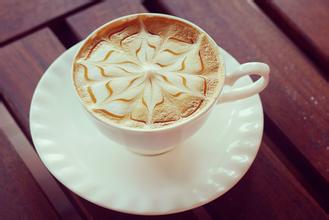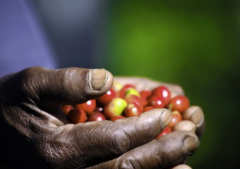One of the coffee producing countries with a long history is the Mexican coffee variety Aldumara Coffee.
The selection of Mexican coffee is generally carried out manually. The main basis for selection is according to the fullness of coffee particles, whether it is uniform, and then grade it. Generally speaking, coffee with full and uniform grains is easier to preserve. Only the fullest and most evenly grained coffee beans can be roasted to represent the best and best coffee in the country.
After the workers picked the coffee beans, they spread the coffee beans in a special house with ventilation on all sides. About a week later, the coffee beans were packed in loosely packed bags so that the wind could blow through the bags. After about seven weeks, the coffee beans changed color and taste. Finally, these coffee beans are selected manually, and the coffee beans of high quality are selected and officially bagged for preservation.
Aldura coffee beans are the top coffee beans in Mexico. This coffee beans have large granules and have strong sweet, sour and good aroma.
Mexicans are optimistic and enthusiastic, and it can also be seen from their coffee that the mellow Mexican coffee is not only loved by the native people, but also praised by many coffee connoisseurs. There are many ways to taste Mexican coffee, mainly divided into alcoholic and non-alcoholic practices.
Non-alcoholic Mexican coffee often goes with milk. Heat a cup of milk, a teaspoon of cinnamon powder and a teaspoon of vanilla powder in a pot at medium temperature, not too hot, and do not boil the milk. Then add the cocoa powder, dissolve and stir well. If you like chocolate, you can use chocolate paste instead of cocoa powder and milk. Let the milk dry for about 5 minutes, wait until the milk is slightly cool, then pour into the prepared coffee, decorate the coffee surface with cold cream, then decorate with a piece of cinnamon, and the Mexican coffee is ready. The aromas of chocolate and cinnamon blend together to give off the smell of desert. Tasting such a cup of coffee, you seem to be walking through a desert belt full of vicissitudes.

Important Notice :
前街咖啡 FrontStreet Coffee has moved to new addredd:
FrontStreet Coffee Address: 315,Donghua East Road,GuangZhou
Tel:020 38364473
- Prev

The Cologne Islands, a coffee-growing region, was formed by huge undersea volcanic eruptions four or five million years ago.
The Cologne Islands were formed by huge undersea volcanic eruptions four or five million years ago and rose to the surface more than a million years ago. Volcanic eruptions on the island still occur from time to time, and volcanoes on Isabella and Fernandina, the westernmost island of the archipelago, have not stopped, with the most recent two eruptions in 1995 and 1998. In September 1998, Mount Alcedo (Alquito) on Isabella Island (
- Next

Panamanian Don Pepe Manor Boquete Variety Kaduai boutique Coffee
Boutique coffee (specialty coffee) is also called specialty coffee selection coffee. It refers to coffee made from a small number of raw beans with excellent taste grown in an ideal geographical environment. Depending on the special soil and climatic conditions in which they grow, they have outstanding flavor. After strict selection and classification, this kind of coffee is hard in texture, rich in taste and stylish.
Related
- Does Rose Summer choose Blue, Green or Red? Detailed explanation of Rose Summer Coffee plots and Classification in Panamanian Jade Manor
- What is the difference between the origin, producing area, processing plant, cooperative and manor of coffee beans?
- How fine does the espresso powder fit? how to grind the espresso?
- Sca coffee roasting degree color card coffee roasting degree 8 roasting color values what do you mean?
- The practice of lattes: how to make lattes at home
- Introduction to Indonesian Fine Coffee beans-- Java Coffee producing area of Indonesian Arabica Coffee
- How much will the flavor of light and medium roasted rose summer be expressed? What baking level is rose summer suitable for?
- Introduction to the characteristics of washing, sun-drying or wet-planing coffee commonly used in Mantenin, Indonesia
- Price characteristics of Arabica Coffee Bean Starbucks introduction to Manning Coffee Bean Taste producing area Variety Manor
- What is the authentic Yega flavor? What are the flavor characteristics of the really excellent Yejasuffi coffee beans?

